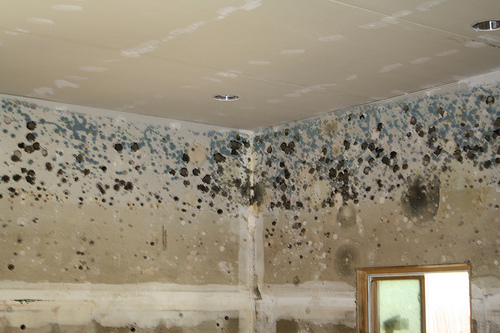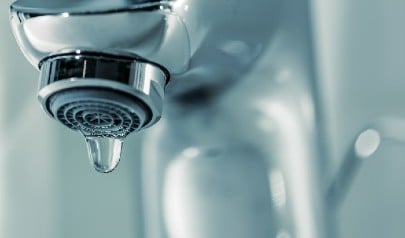We've stumbled on the article pertaining to How to Repair and Prevent Bathroom Water Damage? down the page on the internet and figured it made good sense to write about it with you on this page.

Water damage often takes place in the shower room because of the water made use of everyday. In some cases, the damage could be a little mold and mildew from the shower. Other times, it's huge damages on your flooring. Whatever it is, it is always excellent to understand the cause and also stop it before it happens.
This overview will certainly go through several of the typical root causes of water damage in the washroom. We will certainly also analyze what you can do to avoid these causes from harming your restroom. Allow's dive in.
These are the typical factors you would have water damage in your shower rooms and just how you can find them:
Excess Dampness
It's amazing to have that long shower and also splash water while you hem and haw and imitate you're carrying out, yet in some cases these acts can cause water damage to your washroom.
Splashing water around can trigger water to go to edges as well as create mold and mildews. Enjoy how you spread out excess moisture around, as well as when you do it, clean it up to prevent damages.
Cracks in your wall surface tiles
Shower room wall floor tiles have been particularly developed for that objective. They safeguard the wall surface from moisture from individuals taking showers. However, they are not unbreakable.
Occasionally, your restroom wall surface tiles split and enable some dampness to leak right into the wall. This might possibly destroy the wall surface if you do not take any kind of action. If you see a crack on your wall surface ceramic tiles, repair it instantly. Do not wait till it destroys your wall surface.
Overruning bathrooms as well as sinks
As human beings, in some cases we make mistakes that can cause some water damage in the shower room. As an example, leaving your sink tap on might create overruning and damage to various other parts of the restroom with moisture.
Likewise, a malfunctioning toilet might create overflowing. For example, a damaged commode handle or various other parts of the cistern. When this takes place, it can damage the flooring.
As quickly as you discover an overruning sink or toilet, call a plumbing to help take care of it quickly.
Ruptured or Leaking Pipelines
There are many pipelines bring water to different parts of your shower room. Some pipes take water to the bathroom, the sink, the faucets, the shower, and also many other places. They crisscross the little location of the bathroom.
Occasionally, these pipelines could get rusty and also burst. Other times, human action could cause them to leak. When this occurs, you'll locate water in the edges of your bathroom or on the wall.
To detect this, keep an eye out for gurgling wall surfaces, molds, or mildew. Call a professional emergency plumbing to fix this when it occurs.
Roofing Leakages
Occasionally, the trouble of water damage to the washroom could not originate from the washroom. As an example, a roof covering leakage might trigger damage to the restroom ceiling. You can find the damages done by looking at the water stains on the ceiling.
If you locate water stains on your ceiling, examine the roofing system to see if it's damaged. Then, call a professional to assist address the issue.
Final thought
Water damage to your bathroom can be irritating. However, you can handle it if you prevent some of the reasons pointed out in this guide. Call a specialist emergency situation plumbing technician if you discover any severe damages.
Top 5 Reasons for Water Damage in Your House
Anyone who has had a leak before knows the feeling. That mix of panic, confusion and anger whenever unexpected damage pops up in your favorite place, home. The last place you want to bring you stress is your home.
We have combed through our data and have found the top 5 reasons water damage may pop up. Here they will be explained, and we even threw in some tips you can proactively use to prevent water damage in the first place, how you can spot it early, so it doesn’t evolve into permanent damage, as well as some advice on best practices for when water damage does occur.
Plumbing issues
Water damage is often caused by plumbing issues and it is easy to see, or not see why. Out of sight, out of mind. That’s why it’s important to inspect the plumbing systems in your home at least once a year to ensure that there aren’t any problems with hoses or pipe joints. While inspecting, keep in mind that water pipes do have a certain lifespan. Brass pipes can last for as many as 70 years while copper pipes can last for more than 50 years. The average lifespan for galvanized steel pipes is often between 20 and 50 years, while drain pipes are usually made of either cast iron (which can last for as many as 100 years) or polyvinyl chloride (PVC). Properly maintained PVC pipes can last indefinitely. Factoring in the age of your pipes is important to any inspection or educating your licenced plumber if you decide to bring in professional help.
Have you noticed your water bill increasing? If it is unusually high, that might be an indication of an undetected leak. Buying a water leak sensor that sends alerts to your phone is one way to safeguard your home. You can also check around your toilets, tubs, showers and sinks for any soft spots or moisture. Keep an eye out for loose tiles as well. If you have a dishwasher or a refrigerator with a water line, look for warped or discolored floorboards.
Anyone who has had a leak before knows the feeling. That mix of panic, confusion and anger whenever unexpected damage pops up in your favorite place, home. The last place you want to bring you stress is your home.
We have combed through our data and have found the top 5 reasons water damage may pop up. Here they will be explained, and we even threw in some tips you can proactively use to prevent water damage in the first place, how you can spot it early, so it doesn’t evolve into permanent damage, as well as some advice on best practices for when water damage does occur.
At Hippo, water damage was the top claims filed last year. But the good news is that in more than 90% of cases, water damage is preventable.CLICK TO TWEET
Looking out for plumbing problems, leaks and other issues is key to preventing water from destroying your home.
Plumbing issues
Water damage is often caused by plumbing issues and it is easy to see, or not see why. Out of sight, out of mind. That’s why it’s important to inspect the plumbing systems in your home at least once a year to ensure that there aren’t any problems with hoses or pipe joints. While inspecting, keep in mind that water pipes do have a certain lifespan. Brass pipes can last for as many as 70 years while copper pipes can last for more than 50 years. The average lifespan for galvanized steel pipes is often between 20 and 50 years, while drain pipes are usually made of either cast iron (which can last for as many as 100 years) or polyvinyl chloride (PVC). Properly maintained PVC pipes can last indefinitely. Factoring in the age of your pipes is important to any inspection or educating your licenced plumber if you decide to bring in professional help.
Have you noticed your water bill increasing? If it is unusually high, that might be an indication of an undetected leak. Buying a water leak sensor that sends alerts to your phone is one way to safeguard your home. You can also check around your toilets, tubs, showers and sinks for any soft spots or moisture. Keep an eye out for loose tiles as well. If you have a dishwasher or a refrigerator with a water line, look for warped or discolored floorboards.
Washing machine leaks
Unless you’re doing laundry (or trying out some of these laundry games), you probably don’t think twice about your washing machine. But if it breaks down, the results could be quite annoying. For example, if the supply hose is damaged or has a faulty connection to the wall or washing machine, more than 600 gallons of water could potentially spill out within an hour. Most people notice this before this amount of water is released, but we have all thrown in a load of laundry and started a project somewhere else in the home. Any amount of water could lead to significant damage, especially if your washing machine is located on the second floor of your home.
Bursting water pipes
During severely cold winters, pipes can freeze over and burst. That’s more likely to happen if you have certain types of pipes, such as swimming pool supply lines, water sprinkler lines and pipes with minimal insulation that run against exterior walls.
If temperatures tend to freeze in your area, be sure to protect your pipes. Insulate both hot and cold water pipes using heat tape or pipe sleeves available in your home improvement store. If you have water supply lines in your garage, keep the garage door closed as often as possible. Open kitchen and bathroom cabinet doors to allow warmer air to circulate. If you plan to spend some time away from your home, leave the heat on and set your thermostat to at least 55 degrees. You can’t control the weather, but you can put up a good fight to save your pipes.
Aging water heaters
We have all seen the scene in the movie where the family's basement is flooded by 2 ft or more and the father is yelling and cursing the water heater. Water heaters have a shelf life. Inspect your records to know exactly when it was installed and make a note physically on the water heater itself as well as in your phone to have it replaced every 10 years. It is also worth noting that if you are looking to upgrade, a tankless water heater can last as many as 20 years.
https://www.hippo.com/blog/top-5-reasons-water-damage-house/

As a keen person who reads about How to Repair and Prevent Bathroom Water Damage?, I figured sharing that excerpt was really useful. Are you aware of somebody else who is fascinated by the niche? Be sure promote it. Thank you so much for your time invested reading it.
Free Quote